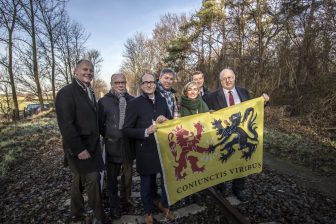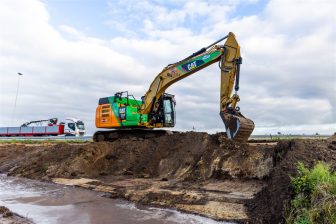ADB to help clean up the PRC’s Songhua River Basin
MANILA, PHILIPPINES – The Asian Development Bank (ADB) is helping to prepare the third major investment project that will significantly contribute to pollution control in the Songhua River Basin, located in the northeastern part of the People’s Republic of China (PRC).
The Songhua River Basin Water Pollution Control and Management project preparatory technical assistance is estimated to cost $1.7 million. ADB will help fund it through a $1.104 million grant, while the Cooperation Fund for the Water Sector, a multi-donor facility established to help speed up the implementation of ADB’s Water Policy in its developing member countries, will extend $196,000 in assistance. The balance will be covered by PRC.
The technical assistance aims to design a loan project that will control and manage pollution in the Songhua River basin to improve the urban environment and quality of life in the surrounding provinces of Jilin and Heilongjiang.
The Songhua River basin is the third largest in PRC with an area of 557,000 square kilometers and a population of 62 million. It has a large industrial base and agriculture is also well developed. The Songhua River catchment area covers mainly Jilin and Heilongjiang provinces.
“Cities in the north and west and around the Songhua River basin are experiencing widespread pollution due to the discharge of untreated wastewater and improper management of solid waste,” said Sangay Penjor, principal financial analysis specialist of ADB’s East Asia Department. “While significant progress has been made in building urban infrastructure over the past two decades, such infrastructure tends to be concentrated in the more highly developed eastern and southern coastal plains.”
Demand for urban infrastructure in the country is rising with increasing urbanization, and more than half the population is expected to live in cities by 2030. This has taken a severe toll on the environment and has also challenged the capacity of local governments to promote good governance, effective planning and management, sustainable financing, and timely delivery of public services.
Only about 57% of urban wastewater in the country is treated and the rest is discharged untreated into rivers and lakes. The growing and uncontrolled disposal of solid waste contributes to increasing contamination of groundwater supplies.
“Cities and towns in Heilongjiang and Jilin provinces must overcome widespread environmental degradation and meet increasing demand for public services to ensure that their economic development is sustainable,” said Mr. Penjor.
U las zojuist één van de gratis premium artikelen
Onbeperkt lezen? Profiteer nu van de introductieaanbieding voor € 10,- per maand.
Bent u al abonnee?



